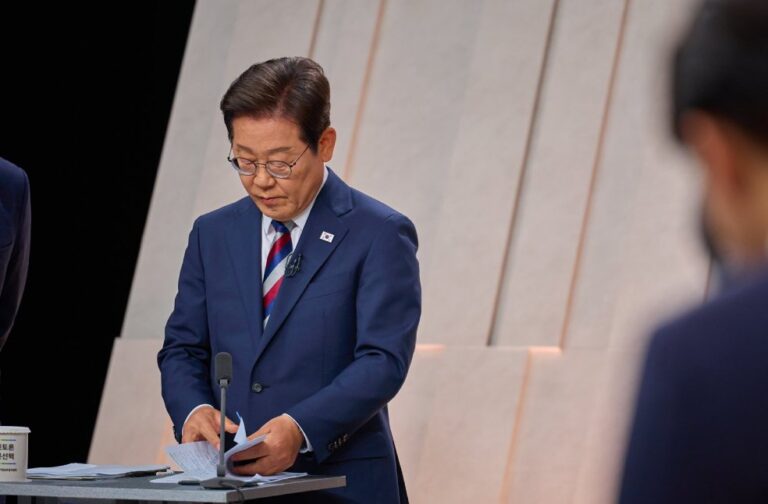Seoul: South Korea’s newly elected president, Lee Jae-myung, has taken office in an unprecedented and urgent handover of power following the impeachment of his predecessor, Yoon Suk Yeol.
The former opposition leader, who won nearly 50 percent of the public vote, has skipped the customary two-month transition period and stepped in immediately to lead a nation grappling with both internal political instability and growing external threats.
<아직 늦지 않았습니다>
투표 종료 1시간 전.
지금 바로 투표장으로 가 주십시오.대한민국의 미래가 여러분의 손에 달려있습니다.
대한국민의 위대한 선택을 믿습니다.고맙습니다.
📌투표 안내
6월 3일(화) 오전 6시~저녁 8시
지정된 본인의 투표소에서🗳내 투표소 찾기… pic.twitter.com/8YmdNBSIkG
— 이재명 (@Jaemyung_Lee) June 3, 2025
Lee’s swift inauguration comes in the wake of a turbulent six months marked by Yoon’s failed attempt to impose martial law, an effort that left South Korea politically fractured and economically wounded. Lee campaigned on a platform of democratic repair and national unity, pledging to steer the country away from authoritarian tendencies and economic hardship. But as he begins his presidency, the crisis he must first confront comes from across the Pacific.
US President Donald Trump has imposed a 25 percent tariff on all South Korean imports, following earlier levies on steel and automobiles—industries central to Korea’s economy. These efforts have alarmed Seoul, where many believed their longstanding military alliance with the United States and a free trade agreement would shield them from such trade aggression.
South Korea’s economy, already hit by political instability, saw contraction in the first quarter of 2025. Voters have made it clear that economic recovery is their top concern, even above political reform. But with no president in office until now, Seoul’s talks with Washington have been on hold. That delay ends immediately, as President Lee prepares to encounter the Trump administration’s new demands.
Beyond trade, the US-South Korea security alliance is now under intense pressure. With 28,500 American troops stationed on the Korean Peninsula as part of a long-standing agreement to discourage North Korean aggression, South Korea has relied heavily on US defence guarantees including the nuclear umbrella. But Trump has signalled a transactional shift in this relationship.

Trump wrote that he had discussed payment for America’s ‘big time military protection,’ calling the negotiations ‘beautiful and efficient one-stop shopping.’ The suggestion that trade and military cooperation are now bundled together has increased alarms in Seoul.
As Washington prioritises countering China’s rise, some US defence officials have floated the idea of repositioning troops from Korea to regions closer to Taiwan. Others suggest Seoul must take greater responsibility for its defence, freeing US forces to focus on deterring Beijing.
This could not only weaken South Korea’s deterrence against North Korea but also place the country in the middle of escalating US-China tensions. President Lee, known for his cautious stance on the US alliance, has repeatedly said South Korea should avoid involvement in a China-Taiwan conflict.
Lee stated that, “We must keep our distance from a China-Taiwan contingency. We can get along with both.” That approach, however, could clash with shifting US expectations. With tensions rising across trade, security, and diplomacy, President Lee now faces one of the most difficult offsetting acts in South Korea’s recent history—rebuilding democracy and the economy at home, while navigating a rapidly transforming global order abroad.



